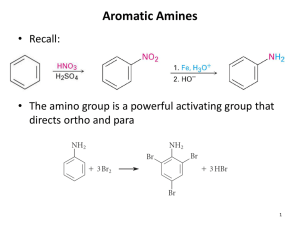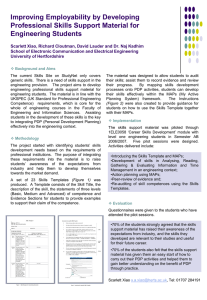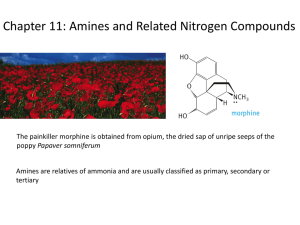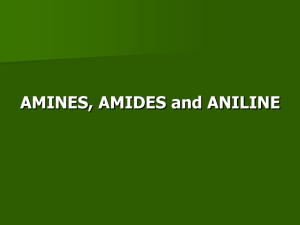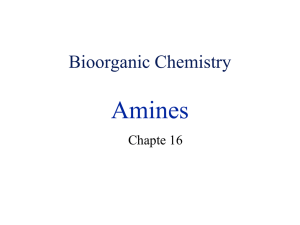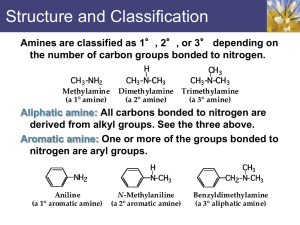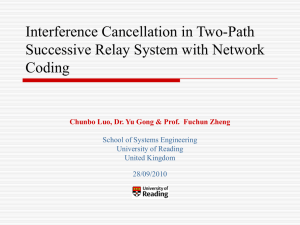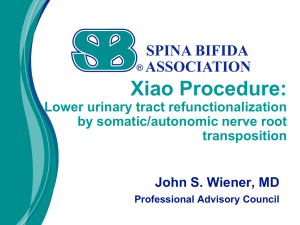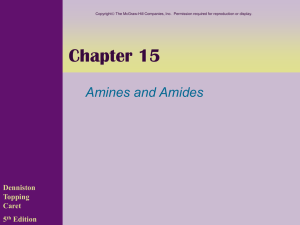8_Xiao_Luo_10.01.08
advertisement
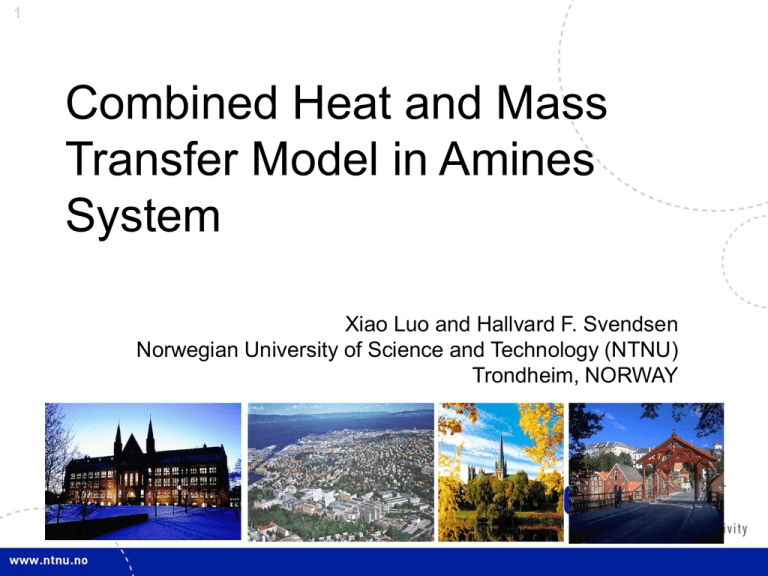
1 Combined Heat and Mass Transfer Model in Amines System Xiao Luo and Hallvard F. Svendsen Norwegian University of Science and Technology (NTNU) Trondheim, NORWAY 2 Contents • Literature work – – – – Motivation Multi-component system Influence of convection Combined heat and mass transfer • Work plan • Expectation XIAO LUO, Combined Heat and Mass Transfer Model in Amines System 3 Motivation • In CO2 absorption processes large mass and heat transfer driving forces occur several places, absorber bottom, water wash section and in the desorber. • Good fundamental models for the combined heat and mass transfer including chemical reaction and convective mechanisms are still lacking. • A proper description of the transfer processes is vital for improved absorption process simulation and optimization. XIAO LUO, Combined Heat and Mass Transfer Model in Amines System 4 General description Interface NCO2 Vapor bulk CO2 Water NH2O Other Gases H2OVap AminesVap Liquid bulk Amines NAmines QL CO2 QS XIAO LUO, Combined Heat and Mass Transfer Model in Amines System 5 Multi-components system • Conventional approaches to mass transfer in multi-component mixtures are based on an assumption that the transfer flux of each component is proportional to its own driving force. • Ross Taylor & R. Krishna, (1993) XIAO LUO, Combined Heat and Mass Transfer Model in Amines System 6 Fick’s Law • Diffusion in binary mixtures: n 1 J i ct Dik xk k 1 • Multi-component Fickian Diffusion Coefficients – Obtained from composition profiles measured in a diffusion apparatus. – Wilke (1950), Dunlop, 1972; Cussler, (1976); – Tyrrell and Harris, (1984); – Schiesser, (1991) XIAO LUO, Combined Heat and Mass Transfer Model in Amines System 7 Maxwell-Stefan Equation • Derivation of Maxwell-Stefan equation – Sum of driving force = Sum of friction force – Theoretic significance d ln i xi dP d 2 RT Vi M i r FZi dz dz dz n xi N j x j Ni j 1 ct Dij RT • Driving force including – – – – – Gravity driving force (usually ignored) Chemical potential driving force; Frank, (1994); Pressure driving force Centrifugal driving force Electrical potential driving force; Schneider, R. (1999) XIAO LUO, Combined Heat and Mass Transfer Model in Amines System 8 Mass transfer theories • Penetration Theory (Higbie, 1935) – – – – Small fluid eddy; Retention time τ Samanta, A. (2007); Tobiesen, F. A. (2007); van Elk, E. P. (2007); Zhang, X. (2004); Mandal, B. P. (2001); Bhat, R. D. Vas, (1998); • Surface renewal theory (Danckwerts, 1951) – Based on Penetration Model; Statistical age distribution function Φ(θ) – Li, Zhengxing (2007); Shen, Shuhua (2007); – Rahimpour, M. R. (2004); Pacheco, M. A. (2000); • Film theory (Lewis & Whitman, 1924) – Steady state; Thickness of film δ; XIAO LUO, Combined Heat and Mass Transfer Model in Amines System 9 Combined heat and mass transfer • Heat transfer including – Sensible heat by difference in temperature between two phases – Latent heat by evaporation or condensation – Heat produced by solvation and chemical reactions – Y. T. Kang & Y. Fujita (2001); I. Alatiqi (1993) XIAO LUO, Combined Heat and Mass Transfer Model in Amines System 10 Modeling separately • Model in liquid phase – Similar property of amines – Water > 90 mol% – Seen as binary mixture – Using Fick’s Law XIAO LUO, Combined Heat and Mass Transfer Model in Amines System 11 Modeling separately • Model in gas phase – More complicated – Differences between each components – Using Maxwell-Stefan Equation XIAO LUO, Combined Heat and Mass Transfer Model in Amines System 12 Combined model • Assumptions – Equilibrium at the interface – Driving force is caused by chemical potential (Liquid) – Consider fugacity driving forces (Gas) – Convective contributions – …… • Combine such models above by using Henry’s Law at the interface XIAO LUO, Combined Heat and Mass Transfer Model in Amines System 13 Experimental validation G-L Interface Wall • Falling film apparatus – Mass transfer at interface Gas NH2O – Heat transfer at interface NCO2 – Considering the influence NAmines Liquid of momentum transfer near the wall TG Heat transfer TL XIAO LUO, Combined Heat and Mass Transfer Model in Amines System 14 Expectation • More accurate – Reduce the number of assumptions of existing models • More scientific – Modify the parameters which only depend on experimental data or empirical equations. XIAO LUO, Combined Heat and Mass Transfer Model in Amines System 15 THANK YOU FOR YOUR ATTENTION XIAO LUO, Combined Heat and Mass Transfer Model in Amines System
